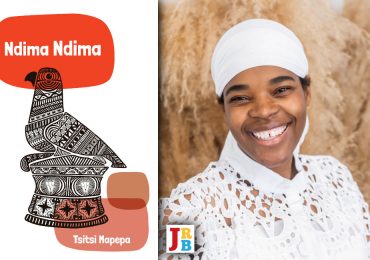Writing for the New Yorker, The JRB Editorial Advisory Panel member Petina Gappah contemplates ‘How Zimbabwe Freed Itself From Robert Mugabe’.
Mugabe’s resignation was announced in Harare on Tuesday, thirty-seven years after he became the first leader of independent Zimbabwe.
Gappah says that for Zimbabweans under the age of thirty-seven, the end of the era of Mugabe is ‘a vista-shifting, imagination-opening opportunity’, although she adds that some are taking a more cautious outlook: ‘Mugabe, they warn, may be gone, but his ZANU-PF party, so closely associated with both his failures and cruel excesses, remains in power.’
For Gappah and her compatriots, she writes, Mugabe’s rule will forever be associated with authoritarian repression, poverty, corruption and cronyism, which ‘all but obliterated the glorious promise of the period soon after Zimbabwe gained independence’. But another aspect of Mugabe’s rule, less apparent to non-Zimbabweans, was his voice.
Among Mugabe’s most effective instruments, and one that he deployed frequently, was his extraordinary voice. It may seem odd to outsiders, but Mugabe’s speeches were one of the ways he held sway over his country. They contained sweeping phrases invoking Zimbabwe’s fifteen-year liberation struggle against the Rhodesian settler regime of Ian Smith. He employed rhetorical devices that made his words weapons: the amplification and over-enunciation; the deliberate, timed pauses between words; the elongation of the second syllables of certain words, such as ‘among’, ‘indeed’, ‘comported’; and the evocation of emotion through lilting inflection at unexpected moments. His is the most recognizable voice in Zimbabwe not only because he was the only leader that generations have known but also because he speaks like no one else.
In his thirty-seven years in power, Mugabe tyrannically centralized power around his person, both at the national level and at the level of his political party, to such a degree that he seemed invincible.
Gappah is the author of the short story collection Elegy for Easterly, which won the Guardian First Book award, and a novel, The Book of Memory, which was awarded the McKitterick Prize from the Society of Authors. Her most recent work is a collection of short stories, Rotten Row.
See also:
- ‘Speaking Shona was associated with humiliation’: Petina Gappah on the influence, on her writing, of Ngũgĩ wa Thiong’o’s Decolonising the Mind
- Exclusive interview: Petina Gappah speaks about the highs and lows of her writing career, and reveals details of her next book





